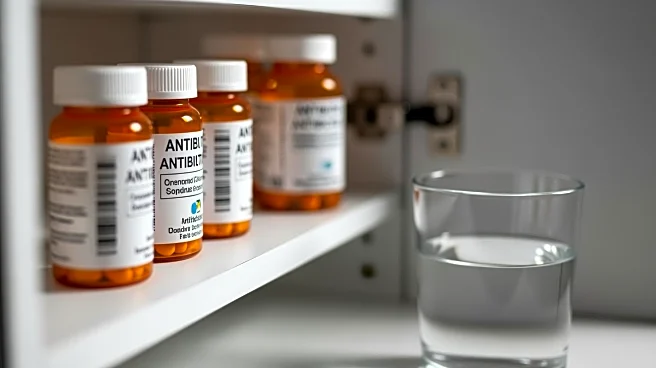What's Happening?
In India, the widespread practice of self-medication with antibiotics is contributing to a significant health crisis, according to medical experts. Antibiotics, including pills, ear drops, and skin creams,
have become common household items, often used without professional guidance. This casual use is leading to increased antibiotic resistance, making infections harder to treat. Dr. Saloni S. Rajyaguru from Mumbai highlights the dangers of relying on past prescriptions, noting that repeated use of antibiotics can lead to resistant infections. Dr. Maheshkumar Lakhe from Pune emphasizes the misuse of topical creams and drops, which are often used for minor skin irritations without understanding the potential harm. Misdiagnosis at home is common, with many people mistaking viral or fungal infections for bacterial ones, leading to inappropriate antibiotic use. Experts stress the importance of professional guidance and early diagnosis to prevent ineffective treatments and safeguard antibiotics for future generations.
Why It's Important?
The misuse of antibiotics poses a serious threat to public health by accelerating the development of antibiotic-resistant bacteria. This resistance can render common infections untreatable, leading to longer illness durations and increased healthcare costs. The lack of new antibiotics in development exacerbates the problem, as resistance outpaces innovation. The situation highlights the need for public awareness and education on the responsible use of antibiotics. Healthcare professionals are concerned that self-medication delays proper treatment, complicating medical interventions and potentially leading to severe health outcomes. The issue underscores the importance of doctor-led care and responsible medication practices to protect individual health and maintain the effectiveness of antibiotics.










